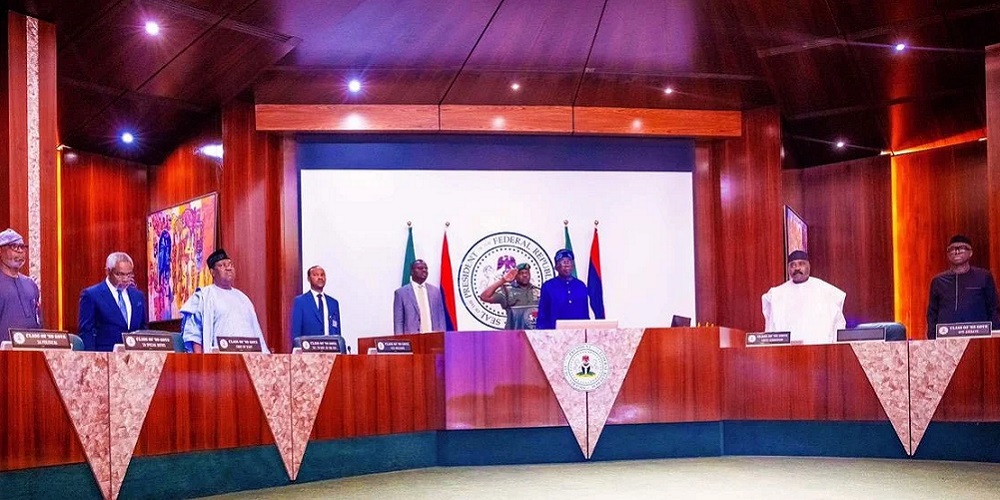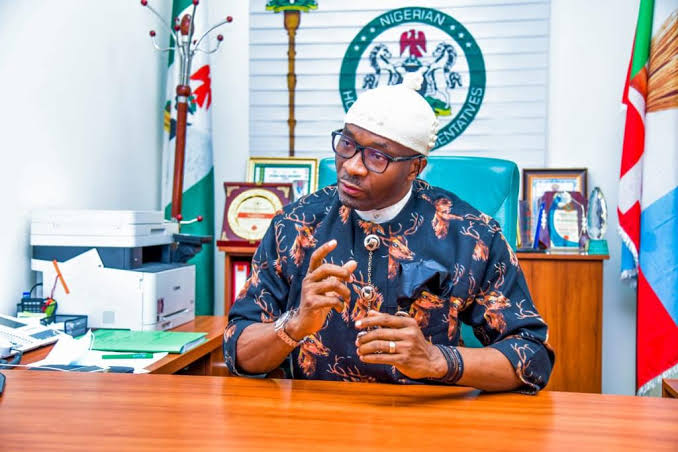News
FEC approves purchase of $1.442m arms, ammunition for NDLEA

The Federal Executive Council (FEC) has approved $1.442 million for the procurement of arms, ammunition and equipment for the National Drug Law Enforcement Agency (NDLEA) to boost its anti-narcotics operations.
The Attorney-General of the Federation and Minister of Justice, Dr Lateef Fagbemi, who disclosed this while briefing journalists at the State House, Abuja, after the FEC meeting, also informed his ministry submitted three memoranda on behalf of the NDLEA to Council.
According to Fagbemi, Council also approved N1.9 billion for the purchase of 33 CNG-compliant vehicles as well as N985 million for the procurement of two full body scanners for the Murtala Muhammed International Airport, Lagos, and the Nnamdi Azikiwe International Airport, Abuja.
He said the other two approvals were also in favour of the NDLEA aimed at making the agency’s operations smooth.
“We discussed some other items today, three items in respect of the National Drug Law Enforcement Agency, otherwise known as NDLEA. The first one is the procurement of 33 Mikano Maxus E60 motor vehicles, to boost the operation of the NDLEA at N1.9 billion.
“You will agree with me that it is important that we give support to the activities of NDLEA so the Council considered this and gave approval for the purchase of 33 Mikano vehicles and they are all CNG compliant.
“The second one is, again, purchase for the NDLEA this time is for the procurement of arms, ammunition and antiriot equipment for counter-narcotics operations for the NDLEA. This is for the sum of $1.442 million.
“The third in the series is the procurement of two units of full body scanners at both Abuja and Lagos international airports to boost the operation of the NDLEA. This is at a cost of N985 million”, the Minister said.
The FEC has approved a ban on the use of single-use plastics, also known as on-the-go plastics, in all federal ministries, agencies, and departments.
Minister of State for Environment, Iziak Salako, who disclosed this at the post-FEC briefing at the State House, explained that the move is in line with the 2022 National Policy on Plastic Waste Management and demonstrates the government’s commitment to addressing the triple crisis of climate change, pollution, and biodiversity loss.
According to the Minister the ban aims to reduce plastic waste, which is a significant contributor to flooding, ocean pollution, and human health issues.
“The Federal Ministry of Environment proposed and the Federal Executive Council approved that a ban be placed on the use of on-the-go plastics, what we know as single-use plastics, in all ministries, agencies and departments of the federal governments. This is in line with the 2022 National Policy on Plastic Waste Management.
“We must say that the discussion in EXCO was very smooth because all members of EXCO including Mr President was very enthusiastic about this ban. This ban is also in line with the commitment of Mr. President to ensure that Nigeria plays its part in ensuring that the triple crisis of climate change, pollution and biodiversity loss is frontally address.
“As you know, plastic is one of the key challenges that we face when we go to our drains and when we talk about the issue of flooding, we find out that plastic waste is heavily incriminated. We also find out that plastic pollution is a major issue in our oceans, is a major issue affecting human health affecting our environment.
While the ban is currently limited to federal government institutions, it is seen as a precursor to a nationwide ban on single-use plastics by January 2025, as outlined in the National Policy on Plastic Waste Management.
“First, let me just say categorically, again, for purposes of clarity. The ban is for federal government ministries, agencies and departments, it is not nationwide. However, this is, in a way preparatory, if you look at the National Policy on Plastic Waste Management, which was adopted in 2022, it envisaged that by January 2025, some categories of plastics will be banned in Nigeria and most of them are single-use; plastic spools, straws, PET bottles, pure water sachets, and so on and so forth.
“So what the federal government is doing is preparing the minds of Nigeria and leading by example. When you see this thing being done in the federal ministries and agencies, it will convince you that it is possible, as a matter of fact, I can tell you that in the Federal Ministry of Environment, we started the ban since January 2024 and it’s been largely”, the Minister said.
News
A Chat with Janet Odio Okolo: A Mother’s Journey Raising a Child with Down Syndrome

News
Hon. Nnamchi Begins Street Lights Deployment In Isi Uzo(Photos)

Honourable Paul Sunday Nnamchi, representing Enugu East/Isi Uzo Federal Constituency in the 10th House of Representatives, has fulfilled his promise to illuminate communities in Isi Uzo Local Government Area.
The lawmaker has just begun the deployment of high-density solar-powered street lights in Ikem Nkwo, marking the beginning of a massive rollout of the street lamps across the communities in Isi Uzo.
This initiative, which started in Enugu East Local Government Area in 2024, aims to support the fight against insecurity in the state which according to him was to add to what Chief Security Officer of Enugu State Barrister Peter Mba had done to secure the state to attracts foreign investments.
The lawmaker expressed concern over banditry attacks, particularly by herdsmen, in some communities within Isi Uzo and Enugu East Local Government Areas in the recent pasts.
He believes that illuminating these areas with high-density street lights would help address the insecurity adding that he was prioritizing border and farming communities in Isi Uzo, where banditry has displaced residents and restricted farming activities.
Communities in Ikem, Eha-Amufu in Isi Uzo which borders Enugu and Benue State and Ugwogo-Nike in Enugu East have been vulnerable to these attacks due to their strategic locations.
News
May Day: Kalu Hails Workers, Applauds Their Role in Nation Building

By Gloria Ikibah
Deputy Speaker of the House of Representatives, Rep. Benjamin Kalu, has extended warm wishes to Nigerian workers as the country marks the 2025 edition of International Workers’ Day.
Kalu praised workers across various sectors for their commitment and resilience, describing them as the engine that keeps the nation moving. He acknowledged their sacrifices and unrelenting drive, especially during tough economic times.
In his message, he highlighted the efforts of the current administration under President Bola Tinubu to improve the welfare of public servants. He referenced the National Assembly’s prompt backing of the new minimum wage as a sign of the government’s seriousness about workers’ wellbeing.
The Deputy Speaker appealed for continued patience and understanding from Nigerians, noting that the ongoing economic reforms, while challenging, are designed to bring long-term relief and prosperity.
Kalu also called for unity, and said the country can only overcome its present difficulties if citizens and leaders work together in good faith.
He therefore urged workers to keep the faith and remain steadfast in their duties, assuring them that brighter days are on the horizon, and wished Nigerian workers a peaceful and fulfilling May Day celebration.
-

 Metro16 hours ago
Metro16 hours agoGunmen storm University of Benin teaching hospital, kill doctor
-

 Metro16 hours ago
Metro16 hours agoFCTA destroys 601 motorbikes over violations
-

 News7 hours ago
News7 hours agoAlleged money laundering: EFCC produces Aisha Achimugu in court
-

 News16 hours ago
News16 hours agoJust in: FG declares tomorrow public holiday
-

 News9 hours ago
News9 hours agoJUST IN: Major General Paul Ufuoma Omu Rtd, dies at 84
-

 News9 hours ago
News9 hours agoTinubu hails Dangote’s World Bank appointment
-

 News11 hours ago
News11 hours agoSAD! Professor’s son takes own life inside varsity staff quarters
-

 News15 hours ago
News15 hours agoFull list: FG approves N110bn to rehabilitate medical schools 18 institutions











